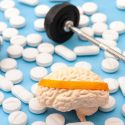Understanding Drug And Alcohol Addiction
Unfortunately, many people fail to understand their addiction to drugs or alcohol before it causes any serious problem. In this article, our medical experts shed light on what addiction is, its connection with the brain, how to recognize and understand it, and warning signs.
What Is Addiction?
It is a chronic brain illness that occurs due to mental or physical dependence on substances or behavior. When a person is addicted to some drug, alcohol, or behavior, they continue that habit even after knowing its adverse effects on the lives of their own and loved ones.
Addiction to drugs or alcohol takes a major toll on the physical and mental health of the patients. In most cases, patients feel helpless to stop this problem on their own. Prolonged substance addiction is even dangerous as it forces patients to continue abusing drugs or alcohol to avoid withdrawal symptoms.
Some of the most common risk factors of addiction are genetics and mental health disorders such as stress, anxiety, trauma, depression, and more.
Connection of Addiction With The Brain
The brain is the most impacted organ because of substance addiction. Substances such as drugs and alcohol activate the reward center in the brain, making it release dopamine. Excessive use of such substances leads to the excessive release of dopamine. Overuse of drugs or alcohol causes difficulties in the brain’s ability to produce dopamine in normal amounts.
As dopamine is responsible for our feelings of joy and happiness, long-term drug addicts often find it difficult to enjoy even the most pleasurable activities when they are not high.
If you or someone you love is struggling with substance addiction, it is crucial to find the best alcohol rehab as soon as possible. Many patients try to combat addiction on their own; however, you have to understand that addiction is a serious disease and cannot be defeated without proper medical assistance.
Recognizing Substance Addiction
Understanding drug or alcohol addiction can be tricky. Addicted individuals mostly try to hide the facts about their addiction from their family members which makes this job even more tedious.
To identify the substance addiction in someone, check if they are exhibiting one or more symptoms from the following list:
- They spend most of their time acquiring drugs or alcohol.
- They are least interested in social events or recreational activities.
- They get emotional or physical too quickly and often face depression, stress, anxiety, or irritability if not under the influence.
- They experience intense cravings to take drugs or alcohol.
- They face financial problems as most of their money is spent on acquiring drugs or alcohol.
- Due to poor performance and unexplained absences, they face issues at work.
- They face difficulties in concentrating and have memory problems.
- They show sudden changes in physical appearance.
- They avoid responsibilities.
- They lack motivation and are very secretive about their lives.
Final Words
Most of the addiction cases start with experimentation with drugs or alcohol. The above-mentioned signs are the red flags to look for if you want to determine if someone is addicted to a substance or not. However, addiction varies from person to person and it can be difficult to recognize addiction in some people.
Millions of people in the US struggle with addiction. If you are one of those, seek medical help immediately and take one step ahead towards a long-lasting recovery.



